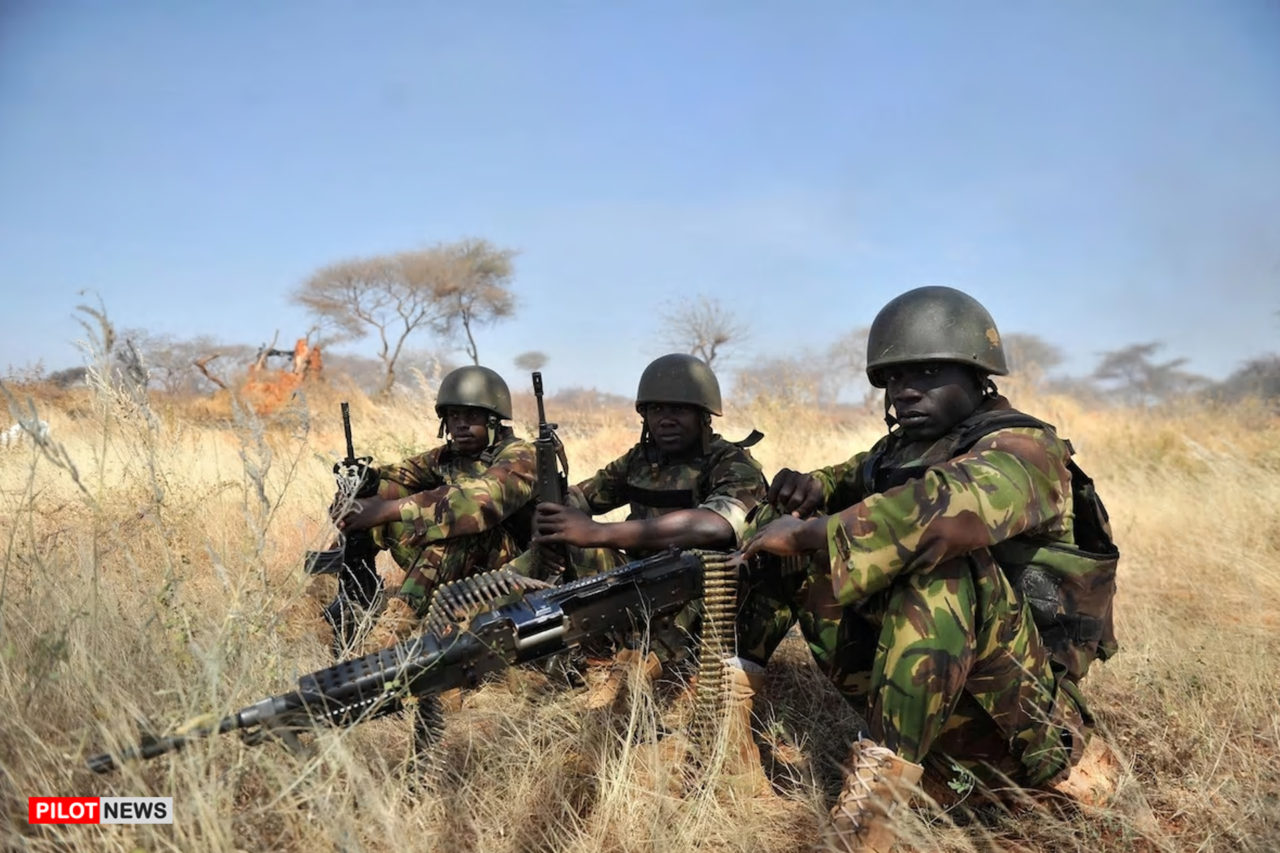Combat soldiers are generally trained to be hard-boiled and resilient, but with the increase in reported cases of Nigerian soldiers turning their guns and knives on colleagues and neighbours, many are calling for a check on the well-being of combatants, with some asking the question, are Nigerian soldiers traumatized?
Telling the tragic story of how the lives of four soldiers were taken by their colleague, the Nigerian Army spokesman, Sagir Musa, on Wednesday 26 February, disclosed that a corporal of the Nigerian Army serving at the theatre command of Operation Lafiya Dole, camp 15, at Malam Fatori, went out of control, shot and killed four of his colleagues, injured two others before committing suicide. Mr. Musa said the military was investigating the cause of the incident.
This is not the first time a Nigerian soldier would commit suicide on a combat base in the northeast where the country is battling the terrorist group, Boko Haram. In September 2018, a media outlet, relying on a military source, reported that one Staff Sergeant Adegor Okpako, attached to 192 Battalion in Gwoza, killed himself two days after killing a colleague and injuring three others in a random shooting incident. Later, the Army said in a tweet that it was a case of accidental discharge during an in-house theatre training.
Although, individuals undergo rigorous trainings before they qualify to be combat soldiers, decade long fight with terrorists which is reported to have resulted in the death of over 30,000 people and two million displaced persons, may be taking its toll on the soldiers – many of whom are poorly-equipped and demoralised.
An investigation in 2018, published by a Nigerian media outlet, found that soldiers in the special forces unit fighting Boko Haram sleep in classrooms because they do not have barracks and that many soldiers in the Maimalari barracks, construct zinc houses for themselves. It further revealed that despite monies allocated to the military, soldiers across the barracks in Maiduguri were poorly fed and many were owed operational allowance.
“We will be advancing to face the enemies and all we are given to eat for days is popcorn and biscuits,” The Cable quoted a source as saying.
“Take my words, they (the military) don’t have the manpower, they don’t have the equipment. Kindly advise the Speaker and Senate President to tell Mr. President to approve the massive recruitment of soldiers. We need about 100,000 more to be recruited into the Nigerian Army.”
In addition to being poorly fed, Nigeria’s campaign to flush out terrorists in the northeast is reported to be lacking enough manpower and weapons. The troops are stretched physically and psychologically. In 2015, at least 66 soldiers were sentenced to death for mutiny. The Wa shington Post quoted a military commander as saying that “the special forces unit had only 174 fighters rather than the 750 soldiers that battalions are expected to have.”
The problem of manpower shortage has not been solved. In Februaury 2020, Babagana Zulum, the Governor of Borno, a state that is frequently attacked by insurgents, said the Nigerian Army needed more men to fight terrorists effectively.
“Take my words, they (the military) don’t have the manpower, they don’t have the equipment. Kindly advise the Speaker and Senate President to tell Mr. President to approve the massive recruitment of soldiers. We need about 100,000 more to be recruited into the Nigerian Army.”
Insufficient manpower would lead to longer duration of deployment in the theatre of operations. Consequently, preventing soldiers from seeing their loved ones. Analysts observe that factors such as poor condition of service, combat tragedies, harsh terrain and climate of the combat zone affect the psychological well-being of many soldiers – especially those exposed to the factors for a long time. If treatment is not sought, problems such as posttraumatic stress disorder (PTSD), anger, depression and addiction emerge.
There have been reported cases of some soldiers causing harm and danger to themselves and others even when not in combat zones. In January 2019, according to media reports, a Nigerian soldier, Private Olodi Blessed, who was from the counter-terrorism frontlines in the northeast, stabbed and killed two people and injured 4 others, including his wife, in Osun State, while on a medical leave.
Some people believe the Nigerian military is allegedly covering up the seriousness of the issue.
“What we have on our hands is a brutal case of posttraumatic stress disorder, which is a common disaster for military across the world. It is the attitude of our military towards it that is worsening the crisis here,” Emeka Nwosu, a military analyst argued.
With over 90 per cent of the budget for the military and the police going to payment of salaries and allowances and a meagre amount allocated to capital projects, it is not clear how the military intends to handle the mental health situation of its officers and men.
“I hope we all realise that when we talk about taking care of their (military) welfare, mental health is also a part of it. Some of them need therapy, trust me,” Gbemi Soyemi, a Nigerian journalist said.
Many people are of the opinion that if the mental health of soldiers are not taken seriously, the harm traumatised soldiers could unleash on citizens, would be disastrous.
- PHOTOS: After 48 Days in Hospital, Boy Labelled Witch and Abandoned is Discharged - August 8, 2021
- Travellers Complain Over Fly Infested Aminu Kano Airport - August 6, 2021
- Ondo 2020: Mimiko Criticises Akeredolu’s Performance - September 28, 2020


